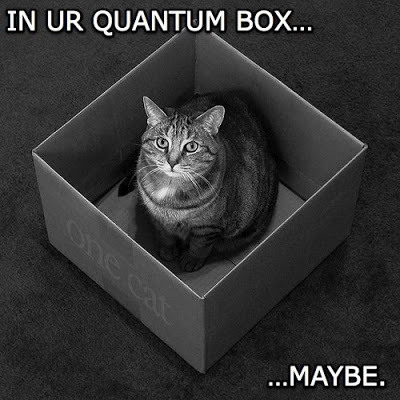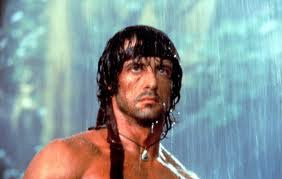Alexander Lydiate's Blog, page 2
May 31, 2016
Divisive Devices
Follow @alexlydiate
You'll have noticed, I imagine, that many people spend a great deal of time staring at their telephones.
Last week I had the dubious fortune of eating lunch at a branch of IKEA (I believe it is on-brand and mandatory to shout the name). As I watched the crowds with their Swedish horse-balls and chips, I noticed that almost all of them were staring at their telephones whilst eating.
It reminded me of a passage from Walpola Sri Rahula's book What the Buddha Taught:
"Sometimes you see a man in a restaurant reading whilst eating. He gives you the impression of being a very busy man, with no time even for eating. You wonder whether he eats or reads. One may say he does both. In fact, he does neither, he enjoys neither. He is strained, and disturbed in mind, and he does not enjoy what he does at the moment, does not live his life in the present moment, but unconsciously and foolishly tries to escape from life."
That was written sixty years ago, and written from a philosophy formalised over two and a half millennia before. It foretells an epidemic.
 Detail from The Adoration of the Cage Fighters,
Detail from The Adoration of the Cage Fighters,
Grayson Perry 2012Grayson Perry's exhibition The Vanity of Small Differences toured through Bath in recent months. One of the pieces tells a cautionary story of this epidemic, a child grasping towards his mother's smartphone. After we toured around the tapestries in the Victoria Art Gallery my wife and I took our daughters upstairs, where they could make some art for themselves. There the scene echoed around the room, with children wrestling against bright electronics for their parent's attention.
The kids will, of course, survive. These are not the worst trials a childhood has been forced to negotiate. The tragedy lies in the loss of our awareness.
Rahula's man in the restaurant read a book to try and escape from his life. Unlike a book, our devices are not passive, they are in some sense aggressive. Algorithms feed us what they deduce we wish to consume. They do not hide this intent; they even use the word feed. The artificial intelligences learn our desires and use them against us, to drag us from our meals, our children, our lives. Our consciousness is held in thrall, blanched by an endless and contracting loop of what we already believe. We engage daily, hourly, by the minute, in a complicit narrowing of our minds, inviting the machine to entwine and constrict our synapses.
We are divided from each other by our little machines, but more dangerous still, we allow them to divide ourselves. We want them to do it. We can no longer consider ourselves whole.
You'll have noticed, I imagine, that many people spend a great deal of time staring at their telephones.
Last week I had the dubious fortune of eating lunch at a branch of IKEA (I believe it is on-brand and mandatory to shout the name). As I watched the crowds with their Swedish horse-balls and chips, I noticed that almost all of them were staring at their telephones whilst eating.
It reminded me of a passage from Walpola Sri Rahula's book What the Buddha Taught:
"Sometimes you see a man in a restaurant reading whilst eating. He gives you the impression of being a very busy man, with no time even for eating. You wonder whether he eats or reads. One may say he does both. In fact, he does neither, he enjoys neither. He is strained, and disturbed in mind, and he does not enjoy what he does at the moment, does not live his life in the present moment, but unconsciously and foolishly tries to escape from life."
That was written sixty years ago, and written from a philosophy formalised over two and a half millennia before. It foretells an epidemic.
 Detail from The Adoration of the Cage Fighters,
Detail from The Adoration of the Cage Fighters,Grayson Perry 2012Grayson Perry's exhibition The Vanity of Small Differences toured through Bath in recent months. One of the pieces tells a cautionary story of this epidemic, a child grasping towards his mother's smartphone. After we toured around the tapestries in the Victoria Art Gallery my wife and I took our daughters upstairs, where they could make some art for themselves. There the scene echoed around the room, with children wrestling against bright electronics for their parent's attention.
The kids will, of course, survive. These are not the worst trials a childhood has been forced to negotiate. The tragedy lies in the loss of our awareness.
Rahula's man in the restaurant read a book to try and escape from his life. Unlike a book, our devices are not passive, they are in some sense aggressive. Algorithms feed us what they deduce we wish to consume. They do not hide this intent; they even use the word feed. The artificial intelligences learn our desires and use them against us, to drag us from our meals, our children, our lives. Our consciousness is held in thrall, blanched by an endless and contracting loop of what we already believe. We engage daily, hourly, by the minute, in a complicit narrowing of our minds, inviting the machine to entwine and constrict our synapses.
We are divided from each other by our little machines, but more dangerous still, we allow them to divide ourselves. We want them to do it. We can no longer consider ourselves whole.
Published on May 31, 2016 14:26
April 17, 2016
The Infantalisation of Western Society
Follow @alexlydiate
Stephen Fry recently attracted negative attention from Twitter.
He may not have noticed the attention as he has recently quit Twitter after attracting negative attention just a few weeks prior. This time it was a reaction to unfortunate comments taken out of context from an otherwise interesting interview with Dave Rubin.
In the interview Fry decries the "infantalism of our culture", an idea he borrows from Jean Baudrillard. He suggests that modern society is no longer able to contemplate complexity. He asserts that people do not wish to accept a necessity of thought and that "there are gradations...no one wants that, they want to be able to decide and say 'This is good, this is bad.'"
Fry's theory was proven by the reaction on Twitter to other comments that he went on to make; the furore is described by this Guardian article. In short, the ten minute interview is reduced to a single unfortunate quote. This profligates like wildfire and is judged to be bad by thousands who would wish that their moral outrage is proof that others should be listening to their commentary.
It should be noted that Fry is not without his own manners of reduction and self promotion when it comes to certain fields, most prominently that of technology. I am reminded of his five minute video lecture in which he recited Free Software Foundation propaganda under the pretence of "wishing GNU a happy birthday". On many other channels he was simultaneously advertising his love for all Apple products, a company absolutely and diametrically opposed to the philosophies of the FSF. It was my deeply held suspicion that he had no real understanding about that of which he spoke. It appeared to me simply an attempt to ingratiate himself with another community, an endeavour of exactly the type on which he appears to thrive. This mentioned, and despite Fry often appearing as a dilettante and serial self-promoter, he has always approached such matters with enthusiasm, positivity and a total lack of moral outrage.
His concern that adult society is becoming increasingly infantalised is valid, prescient and extends outside the confines of a reduction in the complexity of the arts. There are many and dangerous implications, of which I would highlight two.
The first is the reduction of engineering pursuits to playing with children's toys.
There was a time when those who might have identified, probably unhappily, as "geeks" may have had a keen interest in electronics. Or building fully operational model steam engines. Or, as with the case of Linus Torvald, whom Fry venerated in his GNU birthday message, implementing their own operating system. These things are hard. They require research, study, practice and above all discipline. They are pursuits which result in a thousand failures before any success.
Today, legions of people gleefully identify themselves as geeks because they play with Lego.
Making a Lego model has no chance of failure. The satisfaction of success is guaranteed. Lego is a child's toy. Children are not allowed, in the main, to use knives, power drills, toxic glues, sharp metals, and so on. They are reduced to playing Lego. Adults who voluntarily reduce themselves to playing Lego are, it must be concluded, cowards. They are driven by a fear of failure.
We are consistently told that there is a dire shortfall in so-called STEM skills. As a society we become further and further reliant on buying these skills from abroad. By contrast, the neoliberal pursuit of the free market has lead many to believe that these skills, in both study and application, are not for our Western sensibilities. This is prominently illustrated by the government's attitude to our steel industry. Why should we dirty our hands with such work when the Chinese will provide it at half the price, leaving us to the more important activities of blue-sky thinking and the "creative industries"?
When China has the monopoly, when China can name its price, when China strategically withdraws its labour and resources, the answer will become clear, and far too late.
The further we withdraw from the pursuit of hard skills, the more we placate ourselves with child's toys, the weaker we will become.
The second implication I would like to highlight is the effect of infantilisation on the political mind.
Fry scolds us for watching super hero movies: "when you go to the cinema, don't go to see super heroes hitting each other. That's for children."
A cursory glance at your local multiplex will illustrate the dominance of the superhero movie. The demand for the genre increases year on year, seemingly without regard to quality. Despite a critical panning, Batman vs Superman is on course to generate box office sales of a billion US dollars within a month of its release.
To recap the generic form of the genre, born of comic books, that was in its own infancy aimed squarely at children: The first act introduces good guys look that like good guys and bad guys that look like bad guys. The second act contains a little superficial soul-searching where we are briefly asked to consider if the good guys and the bad guys are really that different after all. The third act crashes in with a resounding answer of "Yes!" and the bad guys are pulverised.
In the same manner are the enemies of the West presented; the Taliban (who I noted in a previous post were once the good guys), Al-Qaeda, ISIS. We are presented these villains in two dimensions and as justification of vicious bombing campaigns claiming hundreds of thousands of lives, indiscriminately, and we either buy the argument wholesale or else let it fly past our thinly-veiled apathy.
In his essay Simulcra and Simulations, Jean Baudrillard posits an extraordinary notion about the purpose of Disneyland. He says that it was created as a childish, fictional world to perpetuate the illusion that the rest of America is, by contrast, the real world, populated by adults and non-fiction. The trick of Disneyland is to provide a blind faith that the construct of wider American society is by contrast truthful, and ordered by trustworthy adults; adults that the infantilised masses would be natural to obey. He makes a correlation with the illusion of prisons; that "the purpose of prisons are there to conceal the fact that it is the social in its entirety, in its banal omnipresence, which is carceral."
For Baudrillard, society impresses these notions upon the individual by way of an involuntary manipulation of the mind. But in the 21st century, can we any longer be excused as passive victims? Does "geek culture" not understand that superheroes and Disneyland are of the same mould? Is the truth of the matter that we are complicit in the illusion?
Stephen Fry recently attracted negative attention from Twitter.
He may not have noticed the attention as he has recently quit Twitter after attracting negative attention just a few weeks prior. This time it was a reaction to unfortunate comments taken out of context from an otherwise interesting interview with Dave Rubin.
In the interview Fry decries the "infantalism of our culture", an idea he borrows from Jean Baudrillard. He suggests that modern society is no longer able to contemplate complexity. He asserts that people do not wish to accept a necessity of thought and that "there are gradations...no one wants that, they want to be able to decide and say 'This is good, this is bad.'"
Fry's theory was proven by the reaction on Twitter to other comments that he went on to make; the furore is described by this Guardian article. In short, the ten minute interview is reduced to a single unfortunate quote. This profligates like wildfire and is judged to be bad by thousands who would wish that their moral outrage is proof that others should be listening to their commentary.
It should be noted that Fry is not without his own manners of reduction and self promotion when it comes to certain fields, most prominently that of technology. I am reminded of his five minute video lecture in which he recited Free Software Foundation propaganda under the pretence of "wishing GNU a happy birthday". On many other channels he was simultaneously advertising his love for all Apple products, a company absolutely and diametrically opposed to the philosophies of the FSF. It was my deeply held suspicion that he had no real understanding about that of which he spoke. It appeared to me simply an attempt to ingratiate himself with another community, an endeavour of exactly the type on which he appears to thrive. This mentioned, and despite Fry often appearing as a dilettante and serial self-promoter, he has always approached such matters with enthusiasm, positivity and a total lack of moral outrage.
His concern that adult society is becoming increasingly infantalised is valid, prescient and extends outside the confines of a reduction in the complexity of the arts. There are many and dangerous implications, of which I would highlight two.
The first is the reduction of engineering pursuits to playing with children's toys.
There was a time when those who might have identified, probably unhappily, as "geeks" may have had a keen interest in electronics. Or building fully operational model steam engines. Or, as with the case of Linus Torvald, whom Fry venerated in his GNU birthday message, implementing their own operating system. These things are hard. They require research, study, practice and above all discipline. They are pursuits which result in a thousand failures before any success.
Today, legions of people gleefully identify themselves as geeks because they play with Lego.
Making a Lego model has no chance of failure. The satisfaction of success is guaranteed. Lego is a child's toy. Children are not allowed, in the main, to use knives, power drills, toxic glues, sharp metals, and so on. They are reduced to playing Lego. Adults who voluntarily reduce themselves to playing Lego are, it must be concluded, cowards. They are driven by a fear of failure.
We are consistently told that there is a dire shortfall in so-called STEM skills. As a society we become further and further reliant on buying these skills from abroad. By contrast, the neoliberal pursuit of the free market has lead many to believe that these skills, in both study and application, are not for our Western sensibilities. This is prominently illustrated by the government's attitude to our steel industry. Why should we dirty our hands with such work when the Chinese will provide it at half the price, leaving us to the more important activities of blue-sky thinking and the "creative industries"?
When China has the monopoly, when China can name its price, when China strategically withdraws its labour and resources, the answer will become clear, and far too late.
The further we withdraw from the pursuit of hard skills, the more we placate ourselves with child's toys, the weaker we will become.
The second implication I would like to highlight is the effect of infantilisation on the political mind.
Fry scolds us for watching super hero movies: "when you go to the cinema, don't go to see super heroes hitting each other. That's for children."
A cursory glance at your local multiplex will illustrate the dominance of the superhero movie. The demand for the genre increases year on year, seemingly without regard to quality. Despite a critical panning, Batman vs Superman is on course to generate box office sales of a billion US dollars within a month of its release.
To recap the generic form of the genre, born of comic books, that was in its own infancy aimed squarely at children: The first act introduces good guys look that like good guys and bad guys that look like bad guys. The second act contains a little superficial soul-searching where we are briefly asked to consider if the good guys and the bad guys are really that different after all. The third act crashes in with a resounding answer of "Yes!" and the bad guys are pulverised.
In the same manner are the enemies of the West presented; the Taliban (who I noted in a previous post were once the good guys), Al-Qaeda, ISIS. We are presented these villains in two dimensions and as justification of vicious bombing campaigns claiming hundreds of thousands of lives, indiscriminately, and we either buy the argument wholesale or else let it fly past our thinly-veiled apathy.
In his essay Simulcra and Simulations, Jean Baudrillard posits an extraordinary notion about the purpose of Disneyland. He says that it was created as a childish, fictional world to perpetuate the illusion that the rest of America is, by contrast, the real world, populated by adults and non-fiction. The trick of Disneyland is to provide a blind faith that the construct of wider American society is by contrast truthful, and ordered by trustworthy adults; adults that the infantilised masses would be natural to obey. He makes a correlation with the illusion of prisons; that "the purpose of prisons are there to conceal the fact that it is the social in its entirety, in its banal omnipresence, which is carceral."
For Baudrillard, society impresses these notions upon the individual by way of an involuntary manipulation of the mind. But in the 21st century, can we any longer be excused as passive victims? Does "geek culture" not understand that superheroes and Disneyland are of the same mould? Is the truth of the matter that we are complicit in the illusion?
Published on April 17, 2016 12:14
April 9, 2016
A Fear of Sleep
Follow @alexlydiate
The slide out of consciousness is a mysterious time.
Almost every night I embrace the mind slipping free, the imprecise slide from one state to another, with great pleasure. Once in a rare while, though, it gives me a juddering fear.
I leave the blame for this partly, if not squarely, at the door of the late, great Iain M. Banks.
If you have read his Culture books you'll know that death is, for those of the Culture, a choice rather than a necessity. In the unfortunate case of an accidental death people retain backups of their mind-states which can be reconstituted immediately into another body, making many quite reckless. This life after a death by manner of starting at the last known mind-state is questioned, I think in Look to Windward: is not the new self a facsimile that is falsely convinced of its own history whilst the original is, in point of fact, quite dead?
One day I shall find the precise quote, but the answer given I remember as, "You might ask the same of yourself each time you fall asleep."
Do we die a tiny death each night? Are we reborn each morning, a facsimile of yesterday's consciousness, our history a borrowed patchwork from thousands of prior lifetimes?
Good night.
The slide out of consciousness is a mysterious time.
Almost every night I embrace the mind slipping free, the imprecise slide from one state to another, with great pleasure. Once in a rare while, though, it gives me a juddering fear.
I leave the blame for this partly, if not squarely, at the door of the late, great Iain M. Banks.
If you have read his Culture books you'll know that death is, for those of the Culture, a choice rather than a necessity. In the unfortunate case of an accidental death people retain backups of their mind-states which can be reconstituted immediately into another body, making many quite reckless. This life after a death by manner of starting at the last known mind-state is questioned, I think in Look to Windward: is not the new self a facsimile that is falsely convinced of its own history whilst the original is, in point of fact, quite dead?
One day I shall find the precise quote, but the answer given I remember as, "You might ask the same of yourself each time you fall asleep."
Do we die a tiny death each night? Are we reborn each morning, a facsimile of yesterday's consciousness, our history a borrowed patchwork from thousands of prior lifetimes?
Good night.
Published on April 09, 2016 14:03
April 8, 2016
The Story Oversell
Follow @alexlydiate
Story. Story, story, story. STORY.
That about encapsulates all the instruction I have received on the subject of writing narrative fiction, and in particular screenplays.
I got advice from people. Story, they said. I watched interviews of the great and good. Story. I read a text book. It was called Story.
I get it. I do. I endeavour to apply.
However.
Story doesn't explain Withnail and I, or Catch 22, or Lost in Translation. It doesn't explain why Big succeeds over 17 Again, Vice Versa or Freaky Friday so profoundly.
Flavour.
Consider another artistic perspective: Oasis made album after album of really well structured, studied, highly competent rock and roll. I’d wager they’d swap the lot for Never Mind the Bollocks.
Pushing story above all gets you so far. It gets you multiplex after multiplex of perfectly competent movies.
It does not get you great movies.
Story. Story, story, story. STORY.
That about encapsulates all the instruction I have received on the subject of writing narrative fiction, and in particular screenplays.
I got advice from people. Story, they said. I watched interviews of the great and good. Story. I read a text book. It was called Story.
I get it. I do. I endeavour to apply.
However.
Story doesn't explain Withnail and I, or Catch 22, or Lost in Translation. It doesn't explain why Big succeeds over 17 Again, Vice Versa or Freaky Friday so profoundly.
Flavour.
Consider another artistic perspective: Oasis made album after album of really well structured, studied, highly competent rock and roll. I’d wager they’d swap the lot for Never Mind the Bollocks.
Pushing story above all gets you so far. It gets you multiplex after multiplex of perfectly competent movies.
It does not get you great movies.
Published on April 08, 2016 01:17
April 6, 2016
As Children We Fall In Love With Music
Follow @alexlydiate

On each Saturday of the early to middling Eighties I used to climb the steepest high street I can remember to the late Woolworths.
I'd inch past the pick-and-mix from which I was sorely tempted to steal to the records, racked and ordered and glorious.
Occasionally I had amassed enough pocket money to take one home, and when got there I absorbed every last undulation of the spiralling groove. A collection that builds at a pace of a single song every several weeks is one that is known and cherished.. When saving weekly 50p pieces, albums were a distant dream.
Then came the CD as destroyer. The Wonder of the Digital! Spread jam on it and it will still play, said Tommorow's World! After that, singles got really expensive too. So, my love fell upon the album.
What is an album? A musical form defined by technology. A twelve inch vinyl record played it at 33 1/3 rpm on each side. Not the natural bed-fellow of the Sonata.
Although, if you say you want a revolution, well, you know, you got thirty three and a third a minute, right there.
A single, the pop song form, has great heritage and culture, a myriad of rich variations. To make an article of real artistic integrity when squeezing ten or fifteen songs together on an LP simply to fit the arbitrary length is a huge challenge. So far I given blood, sweat and tears in attempting this twice on my own, and once as part of a band, and it is a tricky business. As difficult as it is for an artist, there is also a challenge for the listener. To absorb an album requires dedication, it demands close attention, it requires commitment. Physical LPs, whether vinyl, cassette or CD were - are, if anyone actually still buys them - expensive. It is a commitment that is becoming harder and harder to sustain as we become enveloped in a digital environment where the play and stop buttons for every record in existence is available to each of us constantly on all-you-can eat streaming services.
Despite how this piece seems to be going, I am not a man mired in nostalgia. The environment of popular music constantly evolves, and always has; indeed, the desire for the new is its driving force. But, does the album form have enough traction to survive continue on into this digital age? Artists do seem to keep making them. Will they continue? Will new forms arise, perhaps more natural forms for the popular the song, such as perhaps to borrow from drama, to see a single as an act, and to form those acts into three, four, five act pieces?

On each Saturday of the early to middling Eighties I used to climb the steepest high street I can remember to the late Woolworths.
I'd inch past the pick-and-mix from which I was sorely tempted to steal to the records, racked and ordered and glorious.
Occasionally I had amassed enough pocket money to take one home, and when got there I absorbed every last undulation of the spiralling groove. A collection that builds at a pace of a single song every several weeks is one that is known and cherished.. When saving weekly 50p pieces, albums were a distant dream.
Then came the CD as destroyer. The Wonder of the Digital! Spread jam on it and it will still play, said Tommorow's World! After that, singles got really expensive too. So, my love fell upon the album.
What is an album? A musical form defined by technology. A twelve inch vinyl record played it at 33 1/3 rpm on each side. Not the natural bed-fellow of the Sonata.
Although, if you say you want a revolution, well, you know, you got thirty three and a third a minute, right there.
A single, the pop song form, has great heritage and culture, a myriad of rich variations. To make an article of real artistic integrity when squeezing ten or fifteen songs together on an LP simply to fit the arbitrary length is a huge challenge. So far I given blood, sweat and tears in attempting this twice on my own, and once as part of a band, and it is a tricky business. As difficult as it is for an artist, there is also a challenge for the listener. To absorb an album requires dedication, it demands close attention, it requires commitment. Physical LPs, whether vinyl, cassette or CD were - are, if anyone actually still buys them - expensive. It is a commitment that is becoming harder and harder to sustain as we become enveloped in a digital environment where the play and stop buttons for every record in existence is available to each of us constantly on all-you-can eat streaming services.
Despite how this piece seems to be going, I am not a man mired in nostalgia. The environment of popular music constantly evolves, and always has; indeed, the desire for the new is its driving force. But, does the album form have enough traction to survive continue on into this digital age? Artists do seem to keep making them. Will they continue? Will new forms arise, perhaps more natural forms for the popular the song, such as perhaps to borrow from drama, to see a single as an act, and to form those acts into three, four, five act pieces?
Published on April 06, 2016 09:37
October 23, 2011
Digging
Follow @alexlydiate
The back of our garden started off looking like this:
 Following an epic battle, it now looks like this:
Following an epic battle, it now looks like this:
 And the middle of it looks like this:
And the middle of it looks like this:
 Enough digging. Build.
Enough digging. Build.
The back of our garden started off looking like this:
 Following an epic battle, it now looks like this:
Following an epic battle, it now looks like this: And the middle of it looks like this:
And the middle of it looks like this: Enough digging. Build.
Enough digging. Build.
Published on October 23, 2011 11:43
October 9, 2011
The Studio of Paradise
Follow @alexlydiate
I have set about swinging a pick axe into the walls of the dead flower bed at the back of my new garden, excavating to level the ground for the Studio of Paradise #14, The Shed of Paradise.
I take pause to review the studio's history.

After many, many years of lurking in the corner of bedrooms and kitchens the SoP #11, The Library of N'LoRC, finally found it's own niche in the box room of a North London flat. The God of N'LoRC, Ganesha, is pictured above.
SoP #11 produced the album Nu Seedy.


A move West required some improvisation to create the SoP #13, The Studio in Two Cupboards. The cupboards are pictured above (SoP #12 was a short lived interim measure).
SoP #13 produced the album Lost.
Now onwards, and downwards. Dig, dig, dig!
I have set about swinging a pick axe into the walls of the dead flower bed at the back of my new garden, excavating to level the ground for the Studio of Paradise #14, The Shed of Paradise.
I take pause to review the studio's history.

After many, many years of lurking in the corner of bedrooms and kitchens the SoP #11, The Library of N'LoRC, finally found it's own niche in the box room of a North London flat. The God of N'LoRC, Ganesha, is pictured above.
SoP #11 produced the album Nu Seedy.


A move West required some improvisation to create the SoP #13, The Studio in Two Cupboards. The cupboards are pictured above (SoP #12 was a short lived interim measure).
SoP #13 produced the album Lost.
Now onwards, and downwards. Dig, dig, dig!
Published on October 09, 2011 09:46
September 23, 2011
Buddhism and Quantum Mechanics
Follow @alexlydiate

I'm down deep with quantum mechanics.
I've got a buddy, much more qualified to speak on the subject than I, who considers the whole shebang a complete red herring, but I'm feeling it, for sure. And I'll tell you why.
I spent many years trying to impress girls with the pretense that I dug the Eastern religions. Naturally I had no tangible success using this strategy, but I did end up reading a bunch of interesting stuff about how these philosophies, in particular Buddhism, view the nature of reality. I ended up marrying a Buddhist, as it goes, probably because I couldn't try to impress her in this suicidal manner.
There is a link between this Eastern thinking and this Western science, and I intend to find out more.
There are many various and sometimes conflicting schools of thought in Buddhism, just as there are conflicting schools of thought within science. Common to them all is the idea of our perceived reality being considered illusionary, either literally or figuratively. Those schools that would figuratively consider our perceived reality to be illusionary propose that our human condition prevents us from understanding the true nature of existence - that it compels us to believe that we are somehow apart from the elements of which we are composed. The schools that literally consider our perceived reality illusionary tell us that our world, our universe, simply is not there; it is a construct of our collective perceptions.
Both of these ideas strike a chord with the theories of quantum mechanics, in which, at a sub atomic level, our constituent particles have properties which exist in innumerable positions simultaneously, or not at all. The vastly greater proportion of our volume is absolute nothingness, and the actual matter of the entire human race could be comfortably contained within a table tennis ball. Even this minute matter, the entire human race, might have more in common with the transience of wing's beat, the energy of a wave, than with our imagined dust.
If the ideas within quantum mechanics hold true then, as with Schrodinger's cat, the nature of the existence of all things requires an observer. It requires perception, without which there is nothing. This is the literal perception of reality. However, it is the consolidation this science lends to the idea of our figurative perception of reality which soothes me, that in understanding what in truth we are, at an elemental level, we can find our escape.
Here's an interesting story of a meeting of two fine minds: Deepest UberSpod Anton Zeilinger, he who realised quantum teleportation, and the Dalai Lama, in 1998

I'm down deep with quantum mechanics.
I've got a buddy, much more qualified to speak on the subject than I, who considers the whole shebang a complete red herring, but I'm feeling it, for sure. And I'll tell you why.
I spent many years trying to impress girls with the pretense that I dug the Eastern religions. Naturally I had no tangible success using this strategy, but I did end up reading a bunch of interesting stuff about how these philosophies, in particular Buddhism, view the nature of reality. I ended up marrying a Buddhist, as it goes, probably because I couldn't try to impress her in this suicidal manner.
There is a link between this Eastern thinking and this Western science, and I intend to find out more.
There are many various and sometimes conflicting schools of thought in Buddhism, just as there are conflicting schools of thought within science. Common to them all is the idea of our perceived reality being considered illusionary, either literally or figuratively. Those schools that would figuratively consider our perceived reality to be illusionary propose that our human condition prevents us from understanding the true nature of existence - that it compels us to believe that we are somehow apart from the elements of which we are composed. The schools that literally consider our perceived reality illusionary tell us that our world, our universe, simply is not there; it is a construct of our collective perceptions.
Both of these ideas strike a chord with the theories of quantum mechanics, in which, at a sub atomic level, our constituent particles have properties which exist in innumerable positions simultaneously, or not at all. The vastly greater proportion of our volume is absolute nothingness, and the actual matter of the entire human race could be comfortably contained within a table tennis ball. Even this minute matter, the entire human race, might have more in common with the transience of wing's beat, the energy of a wave, than with our imagined dust.
If the ideas within quantum mechanics hold true then, as with Schrodinger's cat, the nature of the existence of all things requires an observer. It requires perception, without which there is nothing. This is the literal perception of reality. However, it is the consolidation this science lends to the idea of our figurative perception of reality which soothes me, that in understanding what in truth we are, at an elemental level, we can find our escape.
Here's an interesting story of a meeting of two fine minds: Deepest UberSpod Anton Zeilinger, he who realised quantum teleportation, and the Dalai Lama, in 1998
Published on September 23, 2011 07:18
April 5, 2011
Violence and Empathy
Follow @alexlydiate
I've been reading with interest a report on how violent computer games can restrict the development of empathy in children .
When I was a kid, it was difficult to ascertain whether the collection of lurid pixels generated by my glorious BBC Model B Microcomputer (up there with the Austin Mini in the pantheon of marvellous British feats of engineering) were intended to represent a human being or a bowl of peanuts, or both, so you really couldn't really take shooting it particularly seriously. However, this is not to say my generation were not exposed to inane violence.
 I remember very distinctly watching Rambo 2 or 3 ish on the telly, I was probably ten or so, and seeing Rambo sneak up on this guy who was stood around idly in a jungle, probably smoking a cigarette and scratching his leg with his AK47,and then Rambo leaps up and breaks his neck, dumps him in a ditch and moves on. Suddenly I had this revelatory moment - I thought, hang on, that guy probably has a mum and a dad and brother like me, and now they are going to be really quite sad. This Rambo cat is actually a pretty serious scumbag. It upset me.
I remember very distinctly watching Rambo 2 or 3 ish on the telly, I was probably ten or so, and seeing Rambo sneak up on this guy who was stood around idly in a jungle, probably smoking a cigarette and scratching his leg with his AK47,and then Rambo leaps up and breaks his neck, dumps him in a ditch and moves on. Suddenly I had this revelatory moment - I thought, hang on, that guy probably has a mum and a dad and brother like me, and now they are going to be really quite sad. This Rambo cat is actually a pretty serious scumbag. It upset me.
Incidently, I think he was also on the side of the Taliban, fighting against the Russians.
So, my experience suggests that such absurd violence can actually evoke empathy. In the case that it doesn't I've developed a solution, and it goes like this:
Take, for example, the Grand Theft Auto games, where killing any given pedestrian is only a problem if the police see you doing it, and then only if you can't out manoeuvre them. I propose a mini game in which for each non-gun-toting innocent bystander you mow down in a four by four, or beat to death with a golf club, you have to role-play the police officer giving the news to their weeping old mother.
That'll sort the youth.
I've been reading with interest a report on how violent computer games can restrict the development of empathy in children .
When I was a kid, it was difficult to ascertain whether the collection of lurid pixels generated by my glorious BBC Model B Microcomputer (up there with the Austin Mini in the pantheon of marvellous British feats of engineering) were intended to represent a human being or a bowl of peanuts, or both, so you really couldn't really take shooting it particularly seriously. However, this is not to say my generation were not exposed to inane violence.
 I remember very distinctly watching Rambo 2 or 3 ish on the telly, I was probably ten or so, and seeing Rambo sneak up on this guy who was stood around idly in a jungle, probably smoking a cigarette and scratching his leg with his AK47,and then Rambo leaps up and breaks his neck, dumps him in a ditch and moves on. Suddenly I had this revelatory moment - I thought, hang on, that guy probably has a mum and a dad and brother like me, and now they are going to be really quite sad. This Rambo cat is actually a pretty serious scumbag. It upset me.
I remember very distinctly watching Rambo 2 or 3 ish on the telly, I was probably ten or so, and seeing Rambo sneak up on this guy who was stood around idly in a jungle, probably smoking a cigarette and scratching his leg with his AK47,and then Rambo leaps up and breaks his neck, dumps him in a ditch and moves on. Suddenly I had this revelatory moment - I thought, hang on, that guy probably has a mum and a dad and brother like me, and now they are going to be really quite sad. This Rambo cat is actually a pretty serious scumbag. It upset me.Incidently, I think he was also on the side of the Taliban, fighting against the Russians.
So, my experience suggests that such absurd violence can actually evoke empathy. In the case that it doesn't I've developed a solution, and it goes like this:
Take, for example, the Grand Theft Auto games, where killing any given pedestrian is only a problem if the police see you doing it, and then only if you can't out manoeuvre them. I propose a mini game in which for each non-gun-toting innocent bystander you mow down in a four by four, or beat to death with a golf club, you have to role-play the police officer giving the news to their weeping old mother.
That'll sort the youth.
Published on April 05, 2011 05:03
November 22, 2009
Russian Nuclear Spaceships!
Follow @alexlydiate
Russia is back in the space race, baby, and this time they're going nuclear!
 Space Agency chief Anatoly Perminov promises a design by 2012 of a nuclear powered interplanetary vehicle for a very reasonable £364 million. I'm not going to pretend figures of such magnitude mean much within my reality, but that does seem pretty good value for a spaceship with the potential of going to Mars. The Millennium Dome cost about twice that amount and it didn't go anywhere.
Space Agency chief Anatoly Perminov promises a design by 2012 of a nuclear powered interplanetary vehicle for a very reasonable £364 million. I'm not going to pretend figures of such magnitude mean much within my reality, but that does seem pretty good value for a spaceship with the potential of going to Mars. The Millennium Dome cost about twice that amount and it didn't go anywhere.
Of course, there is a chasm between between saying you'd like a nuclear spaceship and actually having one. This type of crazy talk has occurred before, in the first flourish of space racing. Project Orion, initiated by NASA in 1958, proposed a massive vehicle capable of taking sixty passengers to the Moon, Mars and beyond by ejecting nuclear bombs from its rear. Shock absorbers would then allow the craft to ride the shock waves up into space like a huge pogo stick. Orion spent five years in development until the Partial Test Treaty Ban put an end to the project in 1963. The Americans envisaged actually shifting the spaceship off the Earth on waves of nuclear detonations - it might be that Russia has similar propulsion ideas but would construct the vehicle in orbit, ferrying materials up on conventional rockets.
I love all this lunatic behaviour. It seems it takes a bit of good old fashioned macho, mine is bigger than yours competition to get a rocket up, so to speak, so I really love that Russia have waded in with such ridiculous ambition. I hope this gets Chinese and American heckles raised. After all, space travel is ridiculously ambitious. This is what the Human Race is all about; you don't see the dolphins getting off their fins and flying to the moon. Lazy sods.
Russia is back in the space race, baby, and this time they're going nuclear!
 Space Agency chief Anatoly Perminov promises a design by 2012 of a nuclear powered interplanetary vehicle for a very reasonable £364 million. I'm not going to pretend figures of such magnitude mean much within my reality, but that does seem pretty good value for a spaceship with the potential of going to Mars. The Millennium Dome cost about twice that amount and it didn't go anywhere.
Space Agency chief Anatoly Perminov promises a design by 2012 of a nuclear powered interplanetary vehicle for a very reasonable £364 million. I'm not going to pretend figures of such magnitude mean much within my reality, but that does seem pretty good value for a spaceship with the potential of going to Mars. The Millennium Dome cost about twice that amount and it didn't go anywhere.Of course, there is a chasm between between saying you'd like a nuclear spaceship and actually having one. This type of crazy talk has occurred before, in the first flourish of space racing. Project Orion, initiated by NASA in 1958, proposed a massive vehicle capable of taking sixty passengers to the Moon, Mars and beyond by ejecting nuclear bombs from its rear. Shock absorbers would then allow the craft to ride the shock waves up into space like a huge pogo stick. Orion spent five years in development until the Partial Test Treaty Ban put an end to the project in 1963. The Americans envisaged actually shifting the spaceship off the Earth on waves of nuclear detonations - it might be that Russia has similar propulsion ideas but would construct the vehicle in orbit, ferrying materials up on conventional rockets.
I love all this lunatic behaviour. It seems it takes a bit of good old fashioned macho, mine is bigger than yours competition to get a rocket up, so to speak, so I really love that Russia have waded in with such ridiculous ambition. I hope this gets Chinese and American heckles raised. After all, space travel is ridiculously ambitious. This is what the Human Race is all about; you don't see the dolphins getting off their fins and flying to the moon. Lazy sods.
Published on November 22, 2009 07:29



